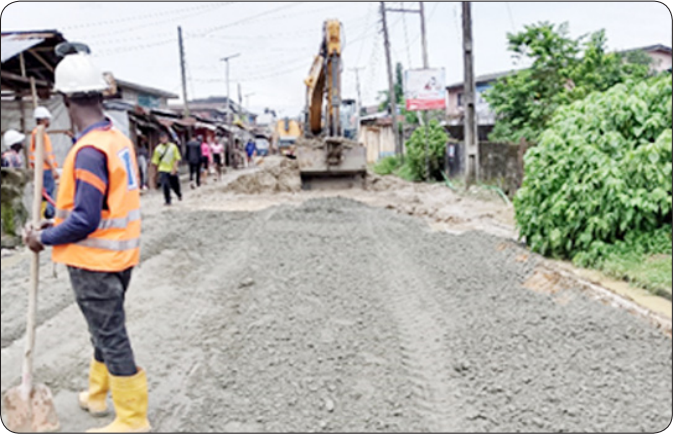THE sectional violence, amid the liberation struggle that has characterized communities in the Southeast, has elicited public concern, considering the resources that have been wasted by the authorities in trying to tame the perpetrators and bring sanity to the region.
Traced to the aftermath of the arrest of the acclaimed leader of the Indigenous People of Biafra (IPOB), Mazi Nnamdi Kanu, and the emergence of the military arm of the group known as Eastern Security Network (ESN), the violence has caused untold hardship and insecurity to the residents, with no end in sight.
However, the deployment of the military and the police to stop the violence and the numerous checkpoints on the various roads in the Southeast have opened a new chapter in the conditions now endured by the people.
The federal government’s intention in deploying the military was to subdue the perpetrators of the crimes and violent agitations, but the checkpoints mounted by these security personnel are now an albatross to the government and the people.
Angered by the deployment, IPOB and its military arm, ESN have engaged in deadly attacks on military locations and police stations in the region. The campaign has been hijacked by the ‘unknown gunmen’, who have defied directives by the ‘mother group’, IPOB, and went on a killing spree and destroying motor vehicles and equipment, in addition to stealing arms belonging to soldiers, Navy, NSCDC and the police.
Besides, they engaged in sporadic shooting, abduction, arson, maiming, and extrajudicial killing of perceived enemies and destruction of properties of private citizens, businesses, and government institutions.
Unfortunately, the crisis in the Southeast is now double-pronged: The activities of the unknown gunmen on the one side and the inconveniences caused to the people by the retinue of checkpoints in the region on the other side.
With the Yuletide season in sight and millions of the Igbo of the Southeast bound to visit home on what looks like an annual ritual, the sufferings of driving through the fragmented highways may be compounded.
Recently, the House of Representatives urged security agencies to reduce the number of checkpoints on the Onitsha-Enugu expressway, following an observation by the member representing Isuikwuato/Umunneochi Federal Constituency, Abia state, Mr. Amobi Ogah.
He said: “The House is aware that the distance between Onitsha and Enugu is approximately 105km with about 28 security checkpoints with an average of 3.7 km each in Awkuzu Junction, Amawbia Junction, Ugwuoba Boundary, Oji River Junction, and Onyeama Hill thus subjecting travellers to constant harassment, delays, and extortion.
Without prejudice to the subsisting crimes, we believe and agree with the reps that the number of checkpoints should be reduced to give the people a space to breadth.
This is so as the motivation for the deployment has shifted from security to monetary desires. The checkpoints in the region are now inimical due to corrupt practices and human rights abuses.
We view the number of checkpoints on the various routes in the Southeast as enslavement, abuse, intimidation, possible waste of resources, and violation of the Nigerian citizens’ constitutional rights to free movement as enshrined in Section 41 of the Constitution of the Federal Republic of Nigeria, 1999 (as amended).
Moreover, apart from the checkpoints that cause traffic lock-down, the military and the police have continued to lose their personnel to ambush by unknown gunmen due to the exposures on the roads.
It is time to reduce the checkpoints in the Southeast. We believe that there are security measures that can be applied to curtail the unknown gunmen and ensure unrestrained movement of goods and individuals in the region.
Consequently, the federal government should insist that security authority should embrace modern policing of intelligence gathering, raid of black spots, technology-based security fight, restriction of arms, support/payment for community vigilantes, equipping security agencies with more arms and ammunition, and special allowances to forestall corruption.
With these in place and the checkpoints reduced, the people will feel a sense of belonging, heave a sigh of relief, and enjoy their rights of movement as citizens.


